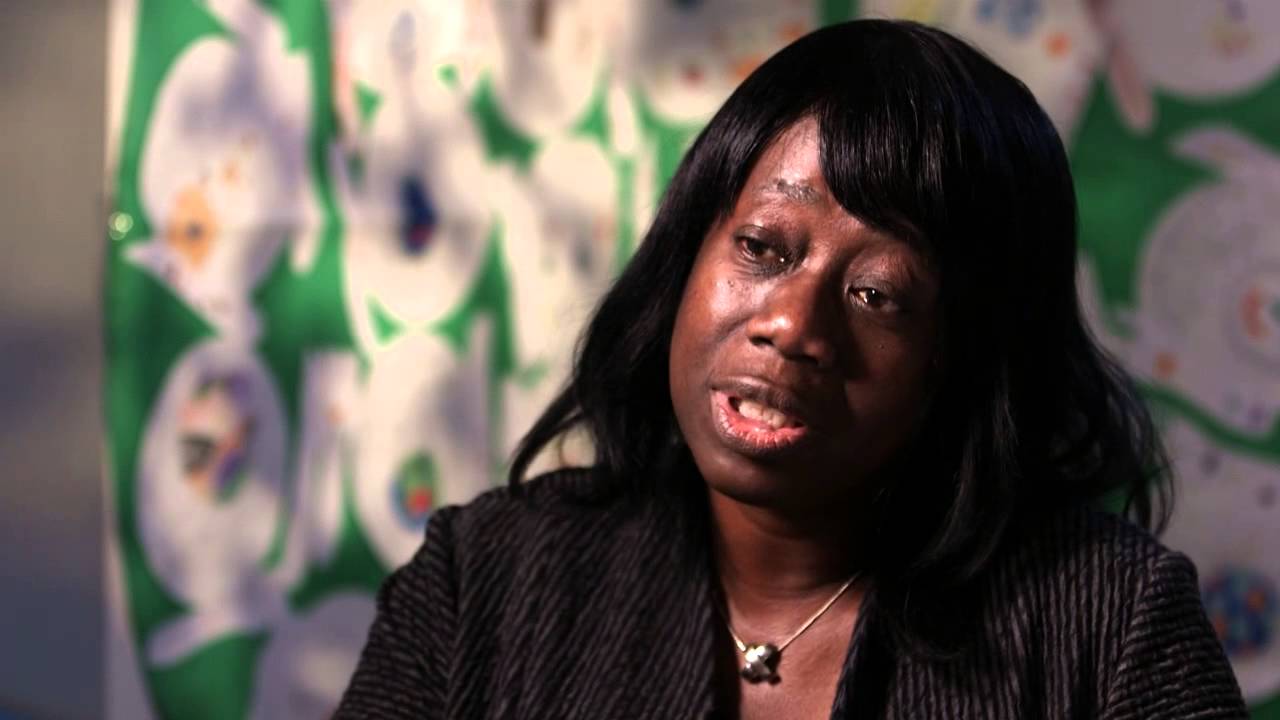‘If you want to go fast, go alone
If you want to go far, go with others’ (African proverb)
Much has been said and written about vaccine hesitancy and health inequalities in Black, Asian, and ethnic minority (BAME) communities, particularly during the Covid pandemic. Lower vaccine uptake and access to health services by BAME communities is also well evidenced and predates Covid.
While there has been lot of work done in this space and there are examples of good practice across the country, there has not been much official engagement with BAME health professional networks who have been working tirelessly over the past decades to address the issues in their communities.
A BAME Health Professional Leadership Engagement Session was held on the 15.02.21 between health and care system leaders and a group of BAME health and care professionals. The aim was to engage with these representatives, acknowledge their key contributions, actively listen to their concerns, and develop sustainable and innovative solutions to address Covid vaccine hesitancy as well as other health inequalities in the BAME communities.
The event was hosted by the Chief Medical Officer (CMO), Prof Chris Whitty, moderated by the Regional Director PHE, Dr Aliko Ahmed and attended by 180 participants including leaders from across the healthcare system. An asset-based approach was employed in order to optimise this cohort of trusted community members and recognise their critical role by actively listening to their concerns and explore culturally sensitive, sustainable and innovative solutions. Insights from trusted community leaders were subsequently discussed during the session in order to inform and influence system leaders from the government, National Health Service (NHS), Public Health England (PHE) and Department of Health and Social care (DHSC) present in the engagement exercise.
Three questions were posed to selected professional representatives of BAME networks:
- What are the underlying factors/ key concerns responsible for reduced uptake of the COVID-19 vaccine within your communities?
- What examples of good practice regarding increasing uptake of COVID-19 vaccine would you like to highlight?
- What can we, as leaders, collectively do to help address underlying factors/ key concerns?
A rich and respectful dialogue ensued between the audience of health and care professionals and system leaders and free flowing thoughts, ideas and opinions were shared with a focus on reframing the language to focus on ‘what is strong, rather than what is wrong.’
Key insights captured by PHE’s behavioural scientists included: a need to understand how the disproportionate impact of Covid on BAME communities is underpinned by different levels of acculturation and a variety of experiences; how conspiracy theories such as vaccine causing infertility can target important cultural expectations such as child bearing; the collective impact of years of historical injustices and health inequalities compounding what we see manifested as COVID-19 vaccine hesitancy. The BAME health professionals in the meeting felt that leaders need to adopt a promise less and do more approach.
Some examples of good practice cited were around collective leadership, focusing on the younger BAME generations as the voice to amplify health messages especially on social media, the invaluable role and achievements of the BAME health professional networks going over and above their call of duty, leveraging the power of existing relationships and sharing that we care through representation in decision making and engagement.
Recommendations from the engagement event included[1]:
- Empowering health and care staff to become vaccine confident. Getting our own house in order first as health and care professionals are the key messengers and role models to the communities.
- Establish an effective support mechanism that can facilitate and enhance the significant discretionary initiatives and actions undertaken by the BAME Health Networks.
- Creation of a central technical and expert resource hub containing a repository of technical materials that can be adapted and used by the networks. Provide resource and support to enable targeted engagement.
- Support to facilitate evidence-based assessment of the impact and value of the Networks to the health system and society in general. For example, immediate action-oriented research to assess the networks’ interventions in covid vaccination to ensure insights and lessons learnt will improve future policy implementation.
- Establishing parity of esteem between the work carried out, often discretionary and with no resources, by BAME professional networks and their ‘day jobs’ in the health and care systems. This also speaks to the issues around recognising the value that this work adds to the system, and how there needs to be better awareness and support from regulators and postgraduate training for BAME professionals undertaking this work.
- Destigmatising and getting the language right; acknowledging that ‘vaccine hesitancy’ is borne from many factors including structural inequalities and moving forwards to reframe it as developing ‘vaccine confidence’. Promoting the concept that these communities are not ‘hard to reach’ but ‘underserved’ communities.
- Provide a channel for two-way communication with senior system leaders and the networks as part of ongoing action-oriented dialogue.
- Mobilise and harness the assets of BAME Healthcare professionals to address inequity and disparities by maximising the opportunities that Covid has exposed such as shining a light on the disparities and rethinking from a user perspective and emphasise the need for uncomfortable but honest conversations accompanied by the availability of transparent data.
- Promote collaboration across community groups to deliver locally driven, culturally competent, awareness raising, health and faith literacy campaigns using trusted voices that are “thinking across systems”.
- An evidence-based rallying call for members of the BAME community to be prioritised for the vaccine.
- Cocreating a legacy. The strongest sentiment in the virtual room was for the legacy of this engagement exercise to outlive Covid and for this not to be a token gesture but the beginning of a new era where we move beyond covid vaccination and tackle deep-rooted systemic health inequalities to improve healthcare access, experience and outcomes of the communities we serve.
Going forwards, the BAME health and care professionals are keen to mark progress against the recommendations and internalise the concept of coproduction within existing health and care structures. Work and discussions are currently underway to explore how the parity of esteem of such healthcare professionals and staff networks can be met through adequate resourcing, workforce development and job planning. There has been a commitment from leaders to commission an evaluation of the impact of the work done by these networks that has already begun. Links are being forged with respective research bodies to inform and influence the design structure of research and to frame it through an ethnicity lens. The networks hope that this is the beginning of a new era which marks sustainable and constructive engagement and collaboration with the health leadership of the country not just for the duration of Covid-19 but across health and inequalities and as the default mechanism.
Please note:
The term BAME is being replaced by ‘ethnic minorities’ across Civil Service but this was the term in use at the time of the event.
The event was conceptualised by Aliko Ahmed, Regional Director East of England
Translated and organised by Drs Dale Weston and Samia Latif, Public Health England (PHE), Anthony Matthews and Cristina Chapman NHS Test and Trace
Facilitated by Dr Salman Waqar, GP & Academic Research Fellow and Dr Titbola Banjoko
[1] Please note that these do not necessarily reflect the views of all participants or organisations present at the meeting. They have been produced to reflect the conversation rather than being agreed or endorsed by attendees or DHSC/ PHE.

Dr Samia Latif
Samia Latif currently works as a Consultant in Communicable Disease Control (CCDC) at Public Health England (PHE). Samia is the Assistant Academic Registrar for UK’s FPH and a member of the Faculty’s Global Health Committee and following Special Interest Groups: Pakistan, Mental Health, Diversity & Equality and Global Violence Prevention. She also chairs PHE’s BAME network. Samia is a GMC appraiser, an educational supervisor and an accredited mentor. Her areas of interest are health protection, culturally intelligent leadership, global public health and public mental health. She is a keen advocate for gender and race equality and is the UK Diaspora Lead for Women in Global Health Pakistan.

Dr Salman Waqar
Salman Waqar is a General Practitioner in Berkshire and a Research Fellow at the Nuffield Department of Primary Care Health Sciences, University of Oxford. He is the Honorary Secretary for the RCGP Thames Valley Faculty and an LMC representative for Berkshire. He is the General Secretary of the British Islamic Medical Association (BIMA), a voluntary non-profit association of Muslim health professionals that have been proactive in community health promotion for many years. He has also been coordinating the BAME Health Professionals Consortium.

Professor Aliko Ahmed
Aliko Ahmed is the Regional Director of Public Health for East of England, and previously the Director of Public Health for Staffordshire NHS and County Council. He oversees the development and implementation of Public Health programmes and activities in the East of England including the provision of technical advice and support to local government and the NHS. He is a Senior Fellow at Centre on Universal Health, Chatham House, and at Wolfson College, University of Cambridge. He also chairs the Faculty of Public Health Africa Group.

Dr Titilola Banjoko
Titilola Banjoko currently works as an Executive Managing Director in the NHS. She successfully pioneered the formation of AfricaRecruit and FindaJobinAfrica.com aimed at harnessing human resources and social capacity in Africa. Currently she serves as the chair of the board for the Foundation for Women’s Health Research and Development (FORWARD) and the chair of the International Rescue Committee UK .She serves on the council of the Royal African Society and is a Trustee of Tropical Health and Education Trust (THET). She is a Fellow of the Nigerian Leadership Initiative and the co-convener of the Better Health for Africa Initiative.

Dr Dale Weston
Dale Weston is a Principal Behavioural Scientist in the COVID-19 Behavioural Science and Insights team at Public Health England. His interests lie in the application of Social and Health Psychology theory and research within the context of public health, with a particular focus on emergency response and communicable diseases.
Declaration of interests
We have read and understood the BMJ Group policy on declaration of interests and declare the following interests: none.